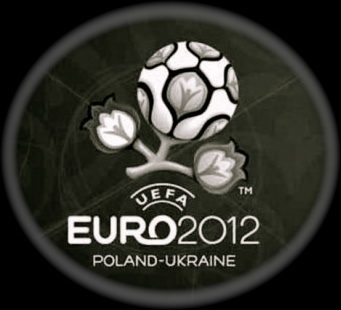


When the 2012 European soccer championships kick off in Poland and Ukraine next June, the IAEA, the UN’s atomic agency will be there to provide expertise as part of effort at safety and security. More than a 1,000,000 fans are expected to attend and the International Atomic Energy Agency (IAEA) will provide hands-on experience in training Poland and Ukraine personnel to quickly detect, identify, and deal with a potential atomic threat. “In each country, nuclear security is the responsibility of each Member State and, of course, every Member State tries to establish and sustain their nuclear security infrastructure,” according to Khammar Mrabit, Director of the IAEA’s Office of Nuclear Security. “At the same time, there are always cases where sources of nuclear material are lost and if these fall into the wrong hands, they can be used for malicious acts.”
No Terror/Security Threat but Precautionary?
From perspective of DiplomaticallyIncorrect.org we are unaware of any terror or other threat, and are conveying a “statement” from the IAEA. Further, the only tangible risk in the region is that associated with the Chernobyl accident from a quarter century earlier – and we are not aware of any significant continuing threat to game sites although limited areas of Ukraine and the region remain radioactively contaminated. (See Film Report: - “Chernobyl 25 Years Later” -
diplomaticallyincorrect.org/films/movie/chernobyl-1986-legacy-lessons-life/26295
Rather than a specific threat, the IAEA appears to be part of the regular precautionary/security methodology – “from protecting nuclear sites against theft and sabotage to enabling secure repatriation of used but still dangerous atomic fuels to helping countries guard against radioactive attacks on major events such as the 2008 Beijing Olympic Games or the 2010 soccer World Cup in South Africa, the IAEA has frequently played a major role. The Beijing Olympics involved one and a half years of work in which the IAEA helped train people to detect radioactive material that might be brought into the venues, and to know what to do if that happened. Greece, Germany, Brazil and Mexico likewise called on agency support for the 2004 Olympics, the 2006 World Cup, and the 2007 and 2010 Pan American Games respectively.” Recent radiation leak over Europe was most recently tracked to a Hungary lab by the IAEA. Read: -
diplomaticallyincorrect.org/films/blog_post/hungary-lab-source-for-radiation-by-ambassador-mo/41888
IAEA experts help States protect nuclear facilities and transport against sabotage or theft, offering specialized training, helping to enhance cooperation between various national law enforcement officials and backing the installation of radiological monitoring equipment and training at border crossings. (See Film Report: -“Serbia Nuke MaterialShipment” -
diplomaticallyincorrect.org/films/movie/serbia-nuke-material-shipment/23961). “We have around 200 events per year in our illicit trafficking database showing that nuclear material can be used for malicious acts. Therefore we’re trying everything together with the Member States to prevent and reduce these threats and these risks,” according to Mr. Mrabit. Around 110 States and several international organizations voluntarily contribute information to the IAEA’s illicit trafficking database, which tracks nuclear or other radioactive materials outside authorized custody and control.
By Ambassador Muhamed Sacirbey
Facebook – Become a Fan at “Diplomatically Incorrect”
Twitter – Follow us at DiplomaticallyX
"WarCrimesJustice" Channel
diplomaticallyincorrect.org/c/war-crimes-justice





